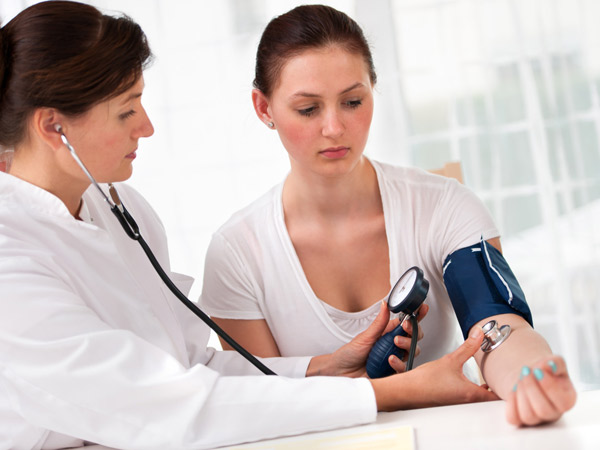As women, we will often talk about nearly anything with our closest friends. However, something that we may leave out is our feminine health. Talking about regular testing or check-ups just seems like something that shouldn’t make for dinner table talk or an everyday phone conversation.
In reality, women should be having more conversations about their feminine health. Conversations help us inform each other about how to better care for our bodies, as well as the experiences others have had while caring for themselves. Hearing these stories also help women shed stigmas surrounding testing, protection, and vaccinations which make it easier for them to seek out the help they need.
So if you are ready to start having conversations with your gal pals about better care for yourselves, arm yourself with knowledge.
Have a Regular PAP
While a PAP smear may not be the most comfortable procedure, it is a must. PAP smears check for abnormal cells lining the uterine wall, and can let women know whether or not they have cervical cancer. The test was once recommended annually for women; however, now it is recommended for women to have one every 3 years.
If at all possible, don’t avoid a PAP. For women who don’t have a regular gynecologist or who can’t afford one, there are other avenues available. Many local clinics and health departments will offer affordable and reliable PAP smears for free or at a very low cost.
Get Tested and Vaccinated
The human papillomavirus (HPV) is responsible for the most common types of cervical cancer, and sexually active women need to remain vigilant to ensure they have not contracted the virus. Unlike a PAP, HPV testing for women doesn’t have to be invasive. A simple urine sample can determine whether or not you may have 1 of the 13 phenotypes responsible for cervical cancer. So if you feel as though you may have contracted HPV from a partner, there is no need to a full PAP immediately. A
If you are under the age of 26, consider receiving the HPV vaccination. This can help further protect sexually active women from contracting HPV, and developing cervical cancer later in life. Women should note, however, that the vaccination does not prevent other sexually transmitted disease so protection is still advised.
Don’t Forget a Clinical Breast Exam
Breast cancer is no joke, and can deeply impact the lives of individuals who are diagnosed. If detected while the cancer still remains in the breast tissue, sufferers can expect a 97 percent survival rate. However, early detection requires routine clinical breast exams for younger women and mammograms for older women.
Starting at the age of 20, you should have a regular clinical breast exam with your woman wellness exam. For women 50 years and older, they should have an annual mammogram to check for abnormalities.
Stay Protected
Staying protected means you care about yourself and your body. If you are sexually active, don’t be afraid to provide your own condoms. As a woman, it is your right to stay protected from sexually transmitted disease and unwanted pregnancy. If you are in a monogamous relationship, have your partner get tested prior to losing the condoms. Monogamy is no excuse for contracting a sexually transmitted disease that could cause you lifelong discomfort.
Have More Testing
When in doubt, visit your gynecologist. If you feel as though you may have contracted something from your partner or are experiencing any type of discomfort, schedule an appointment with your gyno. Chlamydia and gonorrhea are both sexually transmitted diseases whose symptoms can range from being severe to practically nonexistent. However, their effects, such as infertility, can still be devastating.
If you ever feel as though something is off with your body, don’t be afraid to have it checked out. In this case, being safe is a much better option than being sorry. Don’t be reactive when it comes to your health. Be proactive so that you can maintain your feminine health for years to come.












